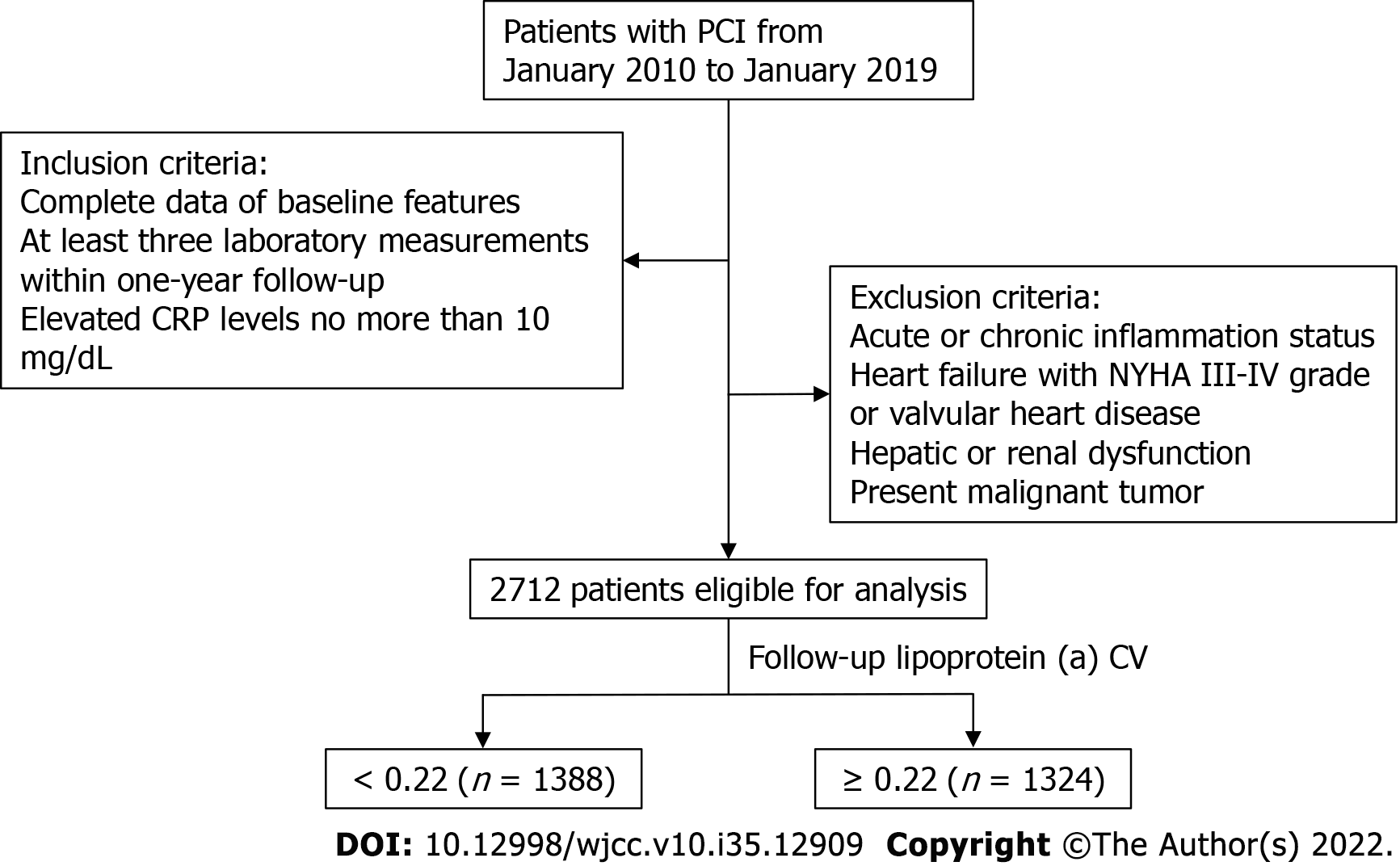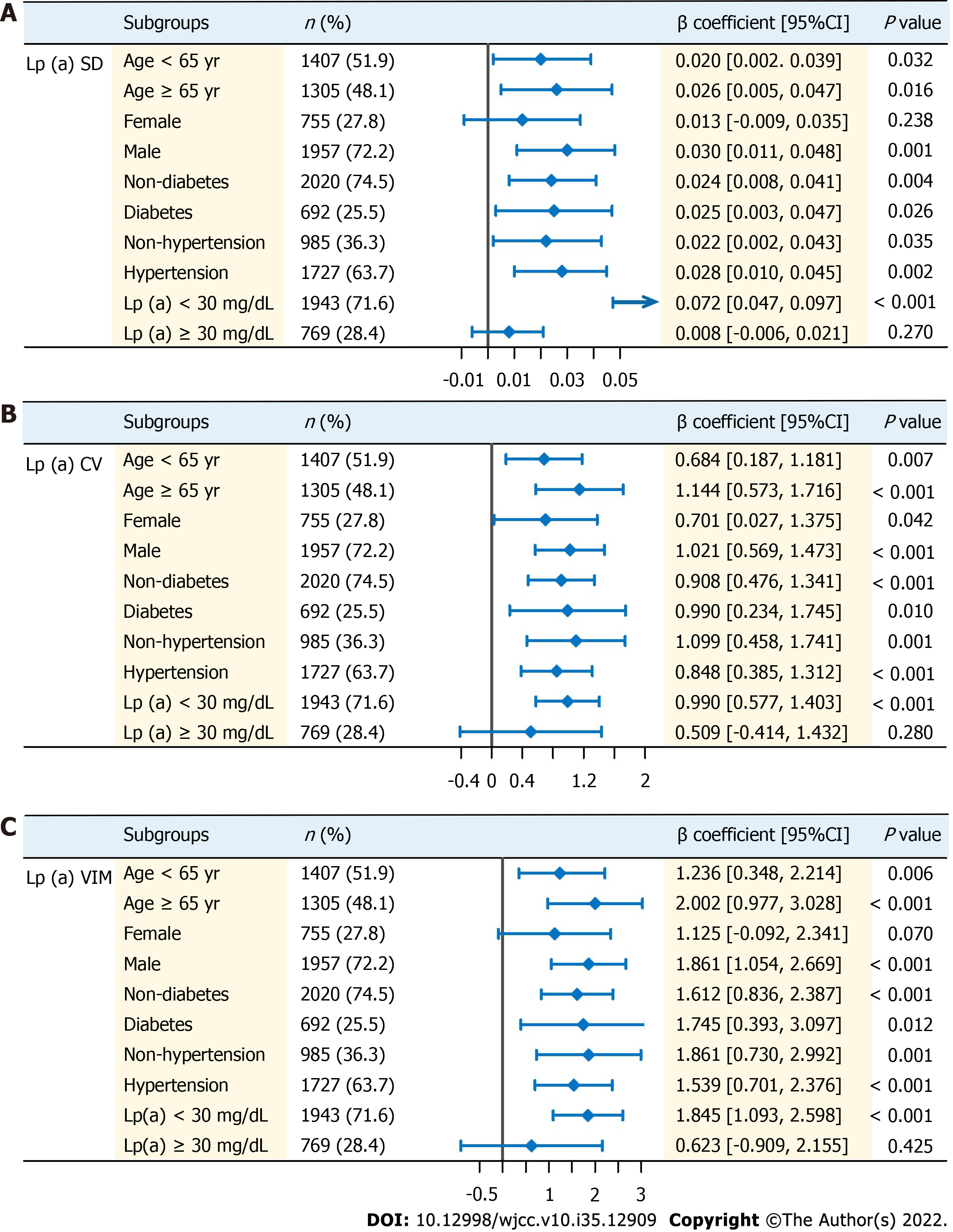Copyright
©The Author(s) 2022.
World J Clin Cases. Dec 16, 2022; 10(35): 12909-12919
Published online Dec 16, 2022. doi: 10.12998/wjcc.v10.i35.12909
Published online Dec 16, 2022. doi: 10.12998/wjcc.v10.i35.12909
Figure 1 Study flowchart.
CRP: C-reactive protein; CV: Coefficient of variation; NYHA: New York Heart Association; PCI: Percutaneous coronary intervention.
Figure 2 Restricted cubic spline analysis of lipoprotein (a) variability with relatively high inflammation status.
Patients with a relatively high inflammation status were defined as those whose average follow-up C-reactive protein was more than the median level (1.52 mg/L). The spline curves were plotted and P for nonlinearity was calculated in each variability of lipoprotein (a) [lp (a)]. A: The risk of hyperinflammation gradually increased with increasing lp (a) SD and then flattened out; B and C: Initial shallow increases in lp (a) coefficient of variation and variability independent of the mean were followed by a rapid rate of increase. CI: Confidence interval; CRP: C-reactive protein; CV: Coefficient of variation; Lp (a): Lipoprotein (a); SD: Standard deviation; VIM: Variability independent of the mean.
Figure 3 Exploratory analysis in various subgroups.
The associations between Lp (a) variability and average follow-up C-reactive protein level were evaluated in various populations. The population was subdivided according to the age, sex, presence of diabetes, presence of hypertension, and average follow-up Lp (a) level. Multivariable linear regression analysis was repeated in each subgroup with the same adjustment as Tables 2-4. A: Mean follow-up lp (a) SD levels; B: Mean follow-up lp (a) CV levels; C: Mean follow-up lp (a) VIM levels. CI: Confidence interval; CRP: C-reactive protein; CV: Coefficient of variation; Lp (a): Lipoprotein (a); SD: Standard deviation; VIM: Variability independent of the mean.
- Citation: Zhang SS, Hu WY, Li YJ, Yu J, Sang S, Alsalman ZM, Xie DQ. Lipoprotein (a) variability is associated with mean follow-up C-reactive protein in patients with coronary artery disease following percutaneous coronary intervention. World J Clin Cases 2022; 10(35): 12909-12919
- URL: https://www.wjgnet.com/2307-8960/full/v10/i35/12909.htm
- DOI: https://dx.doi.org/10.12998/wjcc.v10.i35.12909











